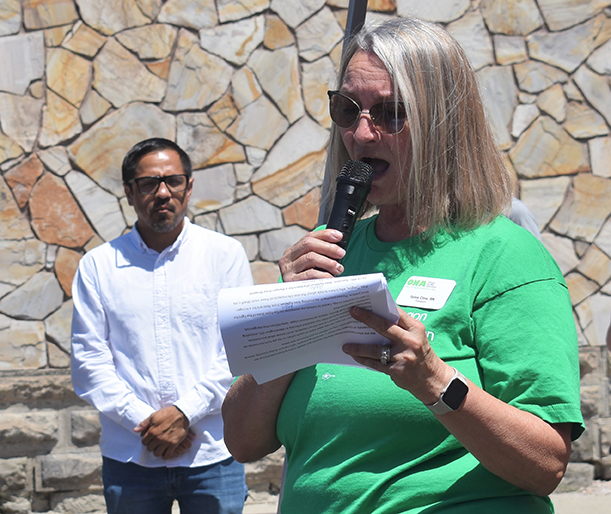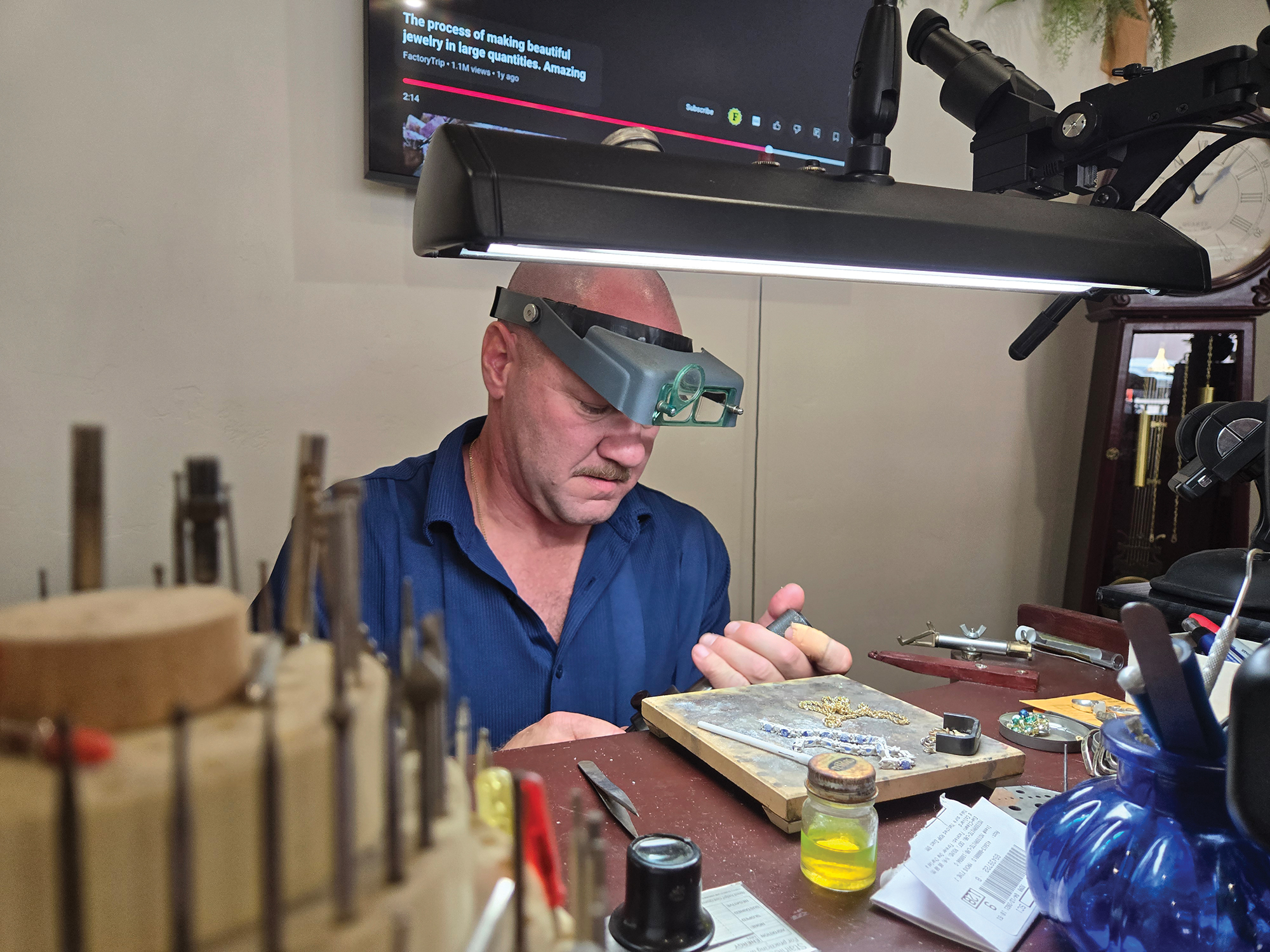Health officials answer COVID questions
Published 3:00 pm Friday, September 3, 2021
By SAMANTHA O’CONNER
soconner@bakercityherald.com
Baker County officials had a one-hour virtual town hall Thursday evening, Sept. 2, to discuss the current surge of COVID-19 cases and concerns regarding hospital capacity.
The panel consisted of:
• Dr. Eric Lamb, Baker County public health officer
• Dr. Lily Wittich of St. Luke’s Eastern Oregon Medical Associates
• Priscilla Lynn, president and chief nursing officer for Saint Alphonsus Medical Center-Baker City
• Nancy Staten, director of the Baker County Health Department
• Mark Bennett, a Baker County commissioner and the county’s incident commander during the pandemic.
The town hall followed a question-and-answer format, with many questions submitted by email prior to the event.
Q: What is the capacity at Saint Alphonsus Medical Center in Baker City?
Lynn said capacity changes from moment to moment and can depend on the condition of patients being seen and the resources they need.
Lynn said the Saint Alphonsus system, including its larger hospitals in Boise and Nampa, are seeing admissions of COVID-19 patients that meet or exceed the peak during the pandemic. More than 20% of patients at the Boise hospital, and 35% at Nampa, are people who tested positive for COVID-19, Lynn said.
“And I think it’s important to note that, even though we don’t have a high volume of COVID patients that are kept in our Baker City hospital, because we do see that they get very sick very quickly, we have transferred in the month of August 12 community members afflicted with COVID-19 to higher level care facilities,” Lynn said. “And that’s 35% of our total transfers to higher levels of care this month. So, those are big numbers for our community and if you could consider what those 12 admissions would mean to our small hospital, that would be extremely impactful.”
Q: Is the hospital planning on canceling any elective surgeries?
Lynn said non-emergency surgeries have not been canceled at the Baker City hospital.
The Saint Alphonsus system has canceled such procedures through Sept. 18 at its Boise and Nampa hospitals.
Q: It was reported the state is sending additional resources like the National Guard to assist hospitals. Is this something that’s occurring in Baker County and why is this necessary if it is?
Wittich said local officials were expecting National Guard soldiers to arrive Friday, Sept. 3, and to be here for several weeks, serving in support roles for medical staff.
“We’re experiencing in some of our nonclinical areas the same staffing shortage that some of our local businesses are experiencing and our staff are very tired and we really want to be able to give them a reprieve,” Wittich said.
Q: What has the reaction been among hospital staff to the state’s vaccine mandate? Have there been any resignations? Are there contingency plans if the hospital staff is cut significantly either due to resignation or termination related to the vaccine mandate?
Wittich said Saint Alphonsus has strongly encouraged employees to get vaccinated and began working in compliance with the mandate after the governor’s order on Aug. 19.
“So, at this time our colleagues are really in the process of complying with the vaccine requirement or asking for an exemption based on religious or medical reason and we still have time until that deadline so we really don’t have solid information as this process is ongoing,” Wittich said. “We are working really diligently to ensure our processes support our colleagues through this. And then you know that we have until the October 18th deadline to be fully vaccinated or have an approved exemption, medical or religious exemption.”
Q: If somebody has symptoms, when should you seek medical care and where can individuals get tested if they need to?
Lamb said people should seek medical attention when their symptoms become worse than the average flu or cold, such as when they are having difficulty breathing, struggling for air, and cannot speak full sentences without taking a breath.
Q: Can you speak to the importance of masking, social distancing, and vaccination in the schools?
“There has recently been a study out of Texas Tech that showed that with the delta variant in particular, that masking and proper wearing of masks helped decrease transmission of delta by about 75%,” Wittich said.
She said this is “extremely critical” especially in schools where the majority of students — those younger than 12 — will be unvaccinated as they are not yet eligible to receive the vaccine.
Q: Why is natural immunity never mentioned?
“Natural immunity is helpful, we’ve learned over the last 18 months that natural immunity has some protection,” Lamb said. “It lasts probably 3-4 months before it starts to fade. Vaccination we’re learning probably lasts 8-10 months before it starts to fade so there is definitely a role for natural immunity and along with vaccination that’s part of the way we’re going to get our community to have immunity to this virus.”
Q: Why get a vaccine if you can still get COVID and still spread it just as much as unvaccinated? What good does it do?
Wittich said the vaccines at this point are performing well even against the delta variant as far as keeping people out of the hospital.
“And that is one of the primary things we need right now is for people to not be hospitalized,” Wittich said.
She said there is some early data that suggests that vaccinated people can still spread the virus; however, the length of time that they can spread the virus may be shorter.









